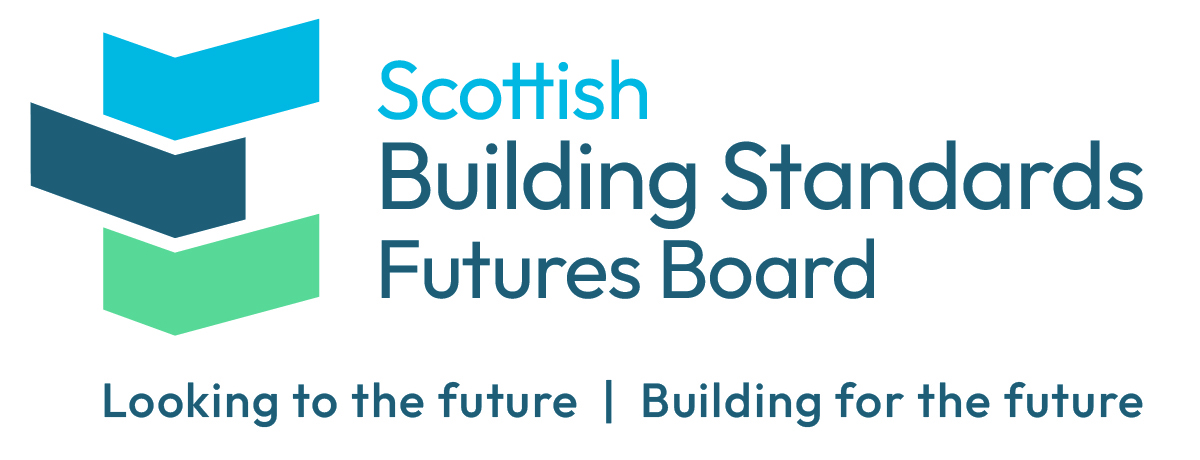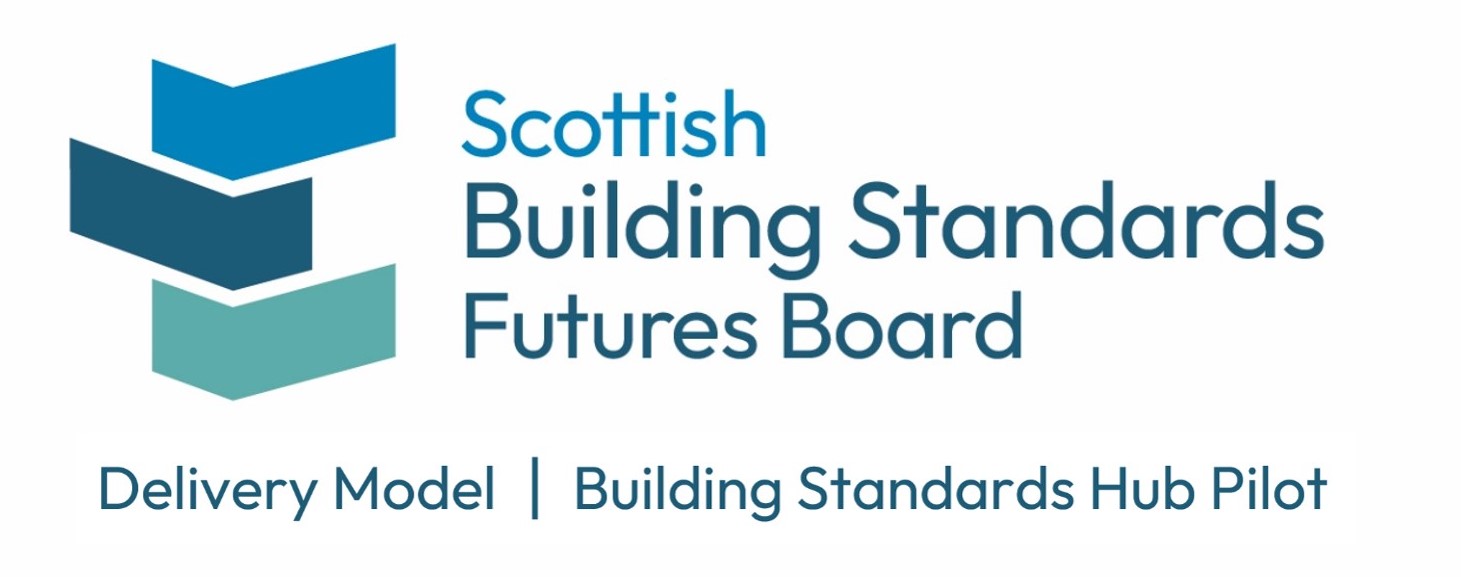Futures Board
Overview
The Building Standards Futures Board was set up at the beginning of 2019 to provide guidance and direction on the development and implementation of recommendations made by the Review Panels on Compliance and Enforcement and Fire Safety. The Review Panels were formed by the Ministerial Working Group on Building and Fire Safety following failings in the construction of Edinburgh School Buildings and the fire at Grenfell Tower, London.
Remit
The Board’s remit is to strategically advise and direct a broad programme of work aimed at improving the performance, expertise, resilience and sustainability of the Scottish building standards framework and services across Scotland.
Work streams are being taken forward by Building Standards Division, Scottish Government, involving a range of stakeholders from construction industry organisations, professional and public bodies including Scottish Futures Trust, Skills Development Scotland, Universities and local authorities (through Local Authority Building Standards Scotland - LABSS).
Outcome
The introduction of the Scottish Building Standards Hub (SBSH - www.sbsh.scot) which takes over responsibility for the Scottish Type Approval Process (STAS), Information Papers and Dispute Resolution.

Scottish Building Standards Hub
The vision is for the Scottish Building Standards Hub (SBSH) (the Hub) to play a key role in supporting transformation and quality in building standards services across Scotland.
The SBSH is an operational Hub that strives to support the delivery and further development of the building standards system in Scotland by working with verifiers, certifiers, and the wider construction sector.
The Hub does not have any political, legislative or verification role within the Building Standards system but recognising the key role the Hub has in sustaining and supporting the delivery of verification services throughout Scotland, Scottish Ministers have agreed that the Hub should be funded through building warrant fees.
The aim of the research is to:
■ Identify and report where local authorities as verifiers are sharing specialist services, contracts or working collaboratively to support the provision of the building standards service in Scotland; and
■ Identify where and how local authorities as verifiers share provision or provide support in the delivery of building standards service.
The objective of the project is to prepare a report that identifies examples of how Scottish local authorities as verifiers are currently sharing and/or collaborating on the provision of specialist services.
Building Standards Blogs
Digital Transformation Strategy
An eBuilding standards national portal was introduced in 2016. The portal enables the electronic submission of applications for building warrants and other forms, such as completion certificates. This project will explore how digital technology can support and enhance building standards.
BSH Digital Hub - Digital Transformation Group (DTG)
The Digital Hub will act on behalf of LABSS to - investigate the extent of digitalisation that presently exists within Scottish Building Standards Services, - assess the good and bad points of solutions in place, and - suggest a level of best practice that exists at present taking account of limitations that may exist within the various Local Authorities, the Scottish Government’s e-Development Portal and what is readily available to applicants, agents and developers.
eDevelopment is the Scottish service that enables users to apply online for planning permission, building warrants, appeals, and a range of other forms, to their local and planning authority. It is managed by the Scottish Government in partnership with all Scottish local and planning authorities.
For more information, why not check out What is eDevelopment? designed to assist newcomers to the service and to Scotland's planning and building standards sectors.
One of the biggest steps was being included in scope of the Digital Planning Programme, Transforming Places Together last Autumn. For most construction projects in Scotland both planning permission and building warrant approval are required so inclusion in this exciting and encompassing programme makes sense because we are serious about a joined up system for developers, contractors, small to medium enterprises (SME’s) and home and property owners.
Futures Board Seven Workstreams
The Board’s remit is to strategically advise and direct a broad programme of work aimed at improving the performance, expertise, resilience and sustainability of the Scottish building standards framework and services across Scotland through seven specific areas of improvement work areas.
Verification Workforce Strategy
Compliance Plan
Certification Strategy
Technical Strategy
Technical guidance is used to meet building regulations and assist with compliance with the mandatory functional standards. A review on how the Technical Handbooks are developed and communicated is being undertaken. The technical strategy will direct how Scottish Government updates and provides guidance in the future. The technical strategy may encompass more digital options to improve compliance.
Amendments to the building regulations and standards are now made by Part 2 of The Building (Scotland) Amendment Regulations 2022. The main changes introduced by the 2022 edition are amendments to regulations and standards that relate to external wall cladding systems, as follows:
Section 0 (general)
Regulation 8 relating to durability, workmanship and fitness of materials is amended to ban the use of highly combustible metal composite material in an external wall cladding system or as an internal lining;
Regulation 8 is amended to ban the use of combustible materials in external wall cladding systems on dwellings and on other defined ‘relevant buildings’ with a storey at a height of 11 metres or more.
Amendment of Schedule 3 to Regulation 5 relating to descriptions of building and work, including the provision of services, fittings and equipment, not requiring a warrant to control the use of combustible materials in the replacement of external wall cladding systems, other than minor repairs; and
Section 2 (fire)
Amendment to building standard 2.7 relating to the spread of fire on external walls to clarify the intent of the standard.
These changes form part of the output from the Building Standards Fire Safety Review Panel1 and measures proposed within the 2021 consultation on external wall systems.
The revised standards and supporting guidance apply to all building warrants submitted on or after 1 June 2022 and are published at:
https://www.gov.scot/policies/building-standards/monitoring-improving-buildingregulations/.
A full list of all latest changes can also be found in clauses 0.1.7 and 2.0.5 in each of the 2022 technical handbooks.
Verification Standards
A review of the Operating and Performance Frameworks to assist verifiers in assessing their service against requirements is being undertaken. Verification standards will focus on the quality with which verification work is undertaken linking with the skills and experience of verifiers and applicants.
1. Professional Expertise and Technical Processes
2. Quality Customer Experience, and
3. Operational and Financial Efficiency.
The two cross-cutting themes ‘Public Interest’ and ‘Continuous Improvement’ remain and are supported by a third theme ‘Partnership Working’ (previously
covered under KPO7). This reflects the importance of working collaboratively, for example, through industry engagement, benchmarking, peer review and sharing of best practice.
